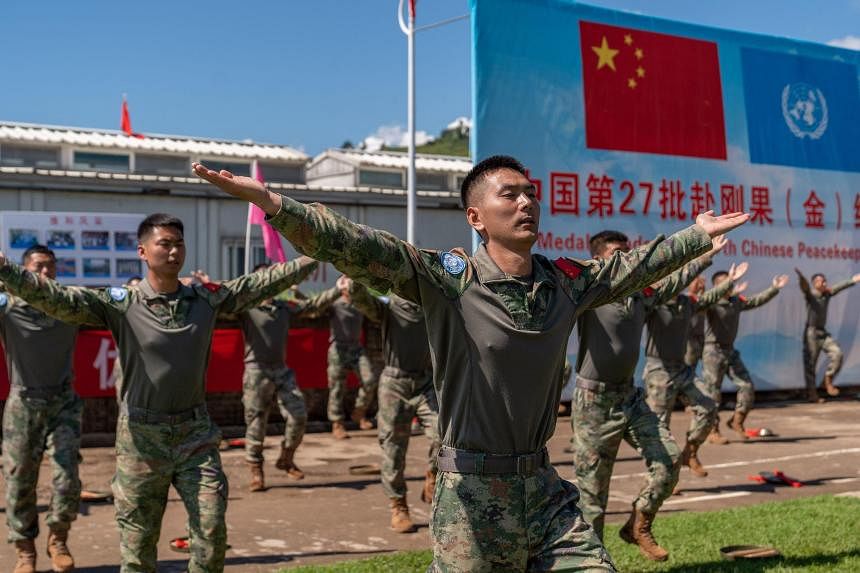BEIJING – Chinese President Xi Jinping has ordered what amounts to the biggest reorganisation of the nation’s military since 2015 in a move that affects the force in charge of capabilities including cyber warfare.
China will terminate the Strategic Support Force, which was created more than eight years ago to enhance capabilities in space, cyber, political and electronic warfare, the official Xinhua News Agency reported on April 19.
Mr Xi is in turn creating a new branch called the Information Support Force. The aerospace and cyber units previously under the Strategic Support Force will now be organisationally parallel to the newly created Information Support Force, the Defence Ministry said in a statement.
Reiterating the Communist Party’s leadership over the army, Mr Xi said the new force will provide “key support in coordinating the construction and utilisation of the cyber information system”.
Mr Li Wei, the political commissar from the now-defunct Strategic Support Force, will take on that same role with the Information Support Force. He pledged to “resolutely” listen to Mr Xi’s instruction. The new commander of the Information Support Force is Mr Bi Yi, state television CCTV reported.
Cyber tensions
The changes are aimed at better adapting China’s military to the “informatisation” conditions of modern warfare, said Mr Cao Weidong, a retired senior researcher at the PLA Naval Research Academy.
The restructuring will lead to “better deployment” of satellite systems and cyberspace, as well as when conducting electronic warfare, he told reporters on the sidelines of the Western Pacific Naval Symposium in Qingdao.
The previous commander of the Strategic Support Force was Mr Ju Qiansheng, whose disappearance had spurred speculation that he was linked to the broader turmoil in China’s military leadership that has unfolded over the past year. While he has recently resurfaced, state media has not made clear his current position.
The restructuring comes as the world’s second-largest economy faces off with the US in a fight for global sway, with cyber warfare emerging as a key battleground. The US, Britain and New Zealand accused China in March of sponsoring malicious cyber activity in targeting democratic institutions.
The latest revamp follows a sweeping purge by Mr Xi of the military establishment in 2023. US intelligence experts viewed that move as a response to the discovery of widespread corruption in the military, including in the Rocket Force, which manages the country’s expanding nuclear arsenal.
Former defence minister Li Shangfu was ousted from his role without explanation last October. China named Mr Dong Jun, a navy veteran, as the new defence chief in December. BLOOMBERG

